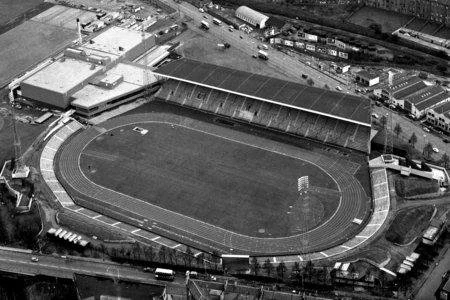Why this sport's in a perilous position in Scotland
Prof. Iain Black writes in our column in The National that an obsession with private sector delivery over grassroots empowerment is holding back Scotland’s sporting success.
As the world rightly admires the astounding Mondo Duplantis for his latest brilliant pole vault world record, can I both congratulate him and provide comment on the state of the sport in Scotland?
The state is not particular to pole vault, but just yet another example of the systematic failures that mean if Mondo had been Scottish, he might have been a sprinter at best.
Pole vault in Scotland, despite the best crop of coaches we have ever had, is in a perilous condition.
While Scottish Athletics can be proud of the number of athletes in the UK World Championship team, there is only one field eventer – and he is based in England.
There are multi-level failures at play that have made it difficult to provide appropriate facilities for leisure and sport over decades, and as important, once they are built, to keep them in athletics use and run for sport. In particular the pole vault in Scotland is under oppressive, unprecedented attack and provides a case study on why participation in sport is declining at a time where mental health issues and obesity are climbing.
Let me give you three examples, all of the same origin.
Edinburgh Leisure, an Arms Length External Organisations (so it’s not longer under the direct control and therefore oversight of the council), has taken over significant amounts of indoor athletics training space for the use of a commercial leisure brand, Hyrox.
The amount taken means that we just don’t have the capacity to train the next Jax Thors (the Scottish record holder) let alone Mondo. We now have limited physical capacity, limited hours in which to train, and have to move kettlebells left on the runway and dodge Hyrox participants as they weave in and out of lanes and hurdles being used by international sprinters.
On the final session before the Scottish Championships this year, our high jump coach had to move a rowing machine that had been placed in the way of her athletes’ run-up, mid-session.
We are also in a position where some of the equipment that Mondo would use to build his amazing strength and dynamism has been placed right next to the pole vault runway. But if athletes try to use it, the camera alerts reception, and a leisure assistant comes and tells us to get off. This equipment is ultimately owned by Edinburgh Leisure.
“The origins of this failure are deep and manifold beginning with an obsession with private sector delivery rather than grassroots empowerment”
And that is on top of the indoor athletics area at Meadowbank being built too short to allow a full range of indoor sprint training, and the ceiling too low to allow the indoor throwing cage to be placed inside — and too low for a senior pole vaunter’s run with the pole in the proper position.
When they rebuilt the once proud Meadowbank Stadium, it went from being able to host Olympians and world record holders in Grand Prix events to not even being licensed to host a Scottish Championship.
In Dundee, the athletes went to train last week only to find their pole vault mats had been removed completely — again chasing the Hyrox dollar.
We are hearing concerning reports from Pitreavie, a fantastic indoor training centre with a brilliant coach, that they too are going to be squeezed out of this purpose-built centre.
These facilities were built using lottery funding, and there are serious questions to be asked about how they have been co-opted for the private sector, outside democratic control, and ultimately stealing from athletes the ability to reach their potential.
So when Scots are looking to see where our field event athletes from Scotland are at the UK or world level, quite frankly, we have the indoor facilities — but they are being taken from us metre by metre and hour by hour, as training time and space is essentially sold off. Even when there is equipment available to develop strength and conditioning, these are out of bounds.
The origins of this failure are deep and manifold. An obsession with private sector delivery rather than grassroots empowerment, artificially squeezed budgets ensuring land is sold off for flats, governance structures without sports expertise or democratic oversight are a few of the "mindset" issues we face.
We should not try to blame PlayStations or TikTok here. The fact that we have a Minister for Sport who is in fact the Minister for Social Care, Mental Wellbeing and Sport (ie at the bottom of the list) to oversee an activity that over 50% of the Scottish population participate in on a monthly basis, tells us much about government priorities.
In Scotland there were 5.3 million supporter visits to professional football, and half a million to professional rugby last year. There are 71 Parkruns every week. The benefits to mental, physical, community and societal health are well known and proven in abundance.
However, where the role of the economy should be to provide for our health, dignity and wellbeing; our obsession with markets, growth and centralised power ensures that instead our economy degrades our health, dignity and wellbeing in part by putting up paywalls and admin walls between participants and facilities.
The example of pole vault — and why Mondo might have been a sprinter at best — is just one example of how our politics and economy continue to fail us.
If you see an Edinburgh councillor or Tom Arthur celebrating Jake Wightman winning the silver in the 1500m at the World athletics championships on Wednesday, or commiserating Josh Keir, both of these athletes are members of Edinburgh Athletics Club, perhaps you could ask yourself: How much did they help — or how much did they get in the way of Scotland’s success?


